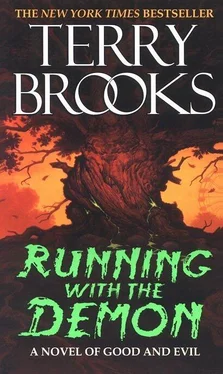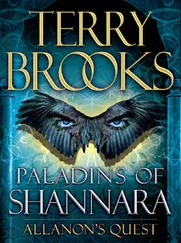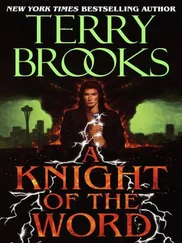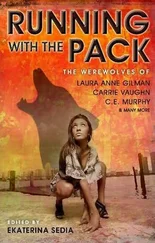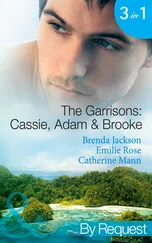He had always been like that. He had excelled in school from an early age, easily gaining honors recognition, effortlessly garnering high praise and enthusiastic recommendations. While he was attending school full–time, while he was required to be there, it was never necessary that he consider doing anything more. It was a comfortable, regimented, encapsulated existence, and he was happy. But with his graduation it became apparent that he must point toward something specific. He might have become a teacher, and thus remained within the classroom, kept himself safe within an academic confinement, but teaching did not interest him. It was the discovery that mattered, the uncovering of truths, the deciphering of life's mysteries that drew him into his studies. And so he moved from college to university, from graduate studies in American literature to funded research in Greek history, all the while waiting for the light to shine down the road his life must necessarily take.
It did not happen, though, and as he approached the age of thirty, he began to think that it never would. His parents, always supportive of him, were beginning to despair of his life. An only child, he had always been the sole focus of their expectations and hopes. They did not say so, but he could read their concerns for him in their studied silence. They no longer supported him–he had long since learned the art of securing scholarships and grants–so money was not an issue. But his options for continued study were drawing to a close, and he was still nowhere close to choosing a career. What could he do with his English degree and his raft of almost completed esoteric studies? If he didn't choose to teach, what could he do? Sell insurance or cars or vacuum cleaners? Go into business? Work for the government? When none of it mattered, when nothing seemed important enough, what could he do?
He chose to go to England. He had saved some money, and he thought that perhaps a trip abroad might give him fresh insight. He had never been outside the United States, save for a brief trip into Canada in his teens and a second into Mexico in his early twenties. He had no experience as a tourist, barely any experience in life beyond the classroom, but he was persuaded to take the plunge by his growing desperation. He would be going to an English–speaking country (well, of course), and he would be discovering (he hoped) something about his substantially English heritage. His one extracurricular activity throughout school had been hiking and camping, so he was strong and able to look after himself. He had some contacts at a few of the universities, and he would find help with lodging and shelter. Perhaps he would even find a smidgen of guest–lecturer work, although that was not important to him. What mattered was removing himself from his present existence in an effort to find his future.
So he applied for and was granted a passport, booked his airline reservation, said good–bye to his parents, and began his journey. He had no timetable for his visit, no date in mind on which he would return, no particular expectation for what he would do. He drifted anew and with careless disregard for his plans to discover himself, traveling through England and Scotland, through London and Edinburgh, south to north and back again. He renewed old acquaintances from his American university days, visited briefly at the places he had marked off on his list of must–see items, and moved on. He walked when he could, finding it the best and most thorough way to see the countryside, saving his money in the not quite acknowledged but inescapable recognition that his travels seemed to be bringing him no closer to his goals.
In the late spring of the year following his summer arrival, the first twelve months of his visit coming to a rapid close, he traveled for the first time into Wales. His decision to go there was oddly precipitated. He was reading on the history of the Welsh and English kings, on Edward I and the iron ring of fortresses he had built to contain the Welsh in Snowdonia, and a friend to whom John Ross had mentioned his reading told him of a cottage her parents owned outside of Betws–y–Coed where he could stay for the asking. Having no better plan for the spending of his time and intrigued by the history he had been reading, he accepted his friend's offer.
So he traveled into Gwynedd, Wales, found the cottage, and began to explore the country surrounding Betws–y–Coed. The village sat in the heart of the Gwydir Forest at the juncture of the Conwy, Llugwy and Lledr valleys within the vast, sprawling wilderness of Snowdonia National Park. Snowdonia, which occupied much of Gwynedd, was mountainous and thickly forested, and his hikes into her wilderness proved long and arduous. But what he found was breathtaking and mysterious, a secretive world that had offered shelter and hiding, but little on which to subsist, to the Welsh during the siege of Edward Longshanks in the late 1200s. He took day trips to the castles, to Harlech, Caernarfon, Beaumaris, and Conwy and all the others that Edward had built, rebuilt, and garrisoned in the forging of his ring of iron. He visited the towns and villages scattered about, poking into their folklore as much as into their history, and he was surprised to discover that some whisper of purpose was drawing him on, that in indulging his curiosity about the past he was embracing an unspoken promise that a form of revelation on the future of his own life might somehow be possible. It was an irrational, unfounded hope, but one that was compelling in its hold over him. He passed that spring and summer in Betws–y–Coed, and he did not think of leaving. He wondered now and again if he was overstaying his welcome, but neither his friend nor her parents contacted him and he was content to leave well enough alone.
Then, on a summer day filled with sunshine and the smell of grasses and wildflowers, he came out of a hike south beyond the Conwy Falls to a sign that said FAIRY GLEN. It was just a weathered board, painted white with black letters, situated at the entrance to a rutted dirt and gravel lane leading off the blacktop through trees and fences, over a rise and into shadow. There was a small parking lot for cars and a box for donations. There was nothing else. He stared at the sign, amused, then intrigued. Why would it be called Fairy Glen? Because it was magical, of course. Because it had a supposed connection to a fairy world. He smiled and turned down the lane. What could it hurt to see? He left a pound in the box and hiked back along the fence line, over the rise, and through a corridor of big trees to a barely recognizable opening in the fence that led toward the sound of rushing water. He stepped through the opening, went down a winding pathway through trees and rocks to the source of the rushing water, and found himself hi the glen.
For a long time he just stood there looking about, not moving, not thinking of anything. The glen was deep and shadowed, but streaked with bright sunlight and roofed by a cloudless blue sky. Massive rocks, broken and cracked, littered the slopes and floor of the glen, as if in ancient, forgotten times a volcanic upheaval had ruptured and split the earth. The water spilled from a series of falls to his left, the rush of their passage a low thunder against the silence. The stream broadened and narrowed by turns as it worked its way through channels formed by the positioning of the boulders, hi some places it ran fast and wild and in others it formed pools so calm and still you could see the riverbed as clearly as if it were covered over with glass. Colored rocks littered the bottom of the stream, visible through the crystalline waters, and wildflowers grew in clusters all along the banks and slopes. The Fairy Glen formed a cathedral of jumbled rocks and trees that closed in the sounds of the twisting waters and shut out the intrusions of the world. Within its sanctuary, you were alone with whatever god you embraced and whatever beliefs you held.
Читать дальше
